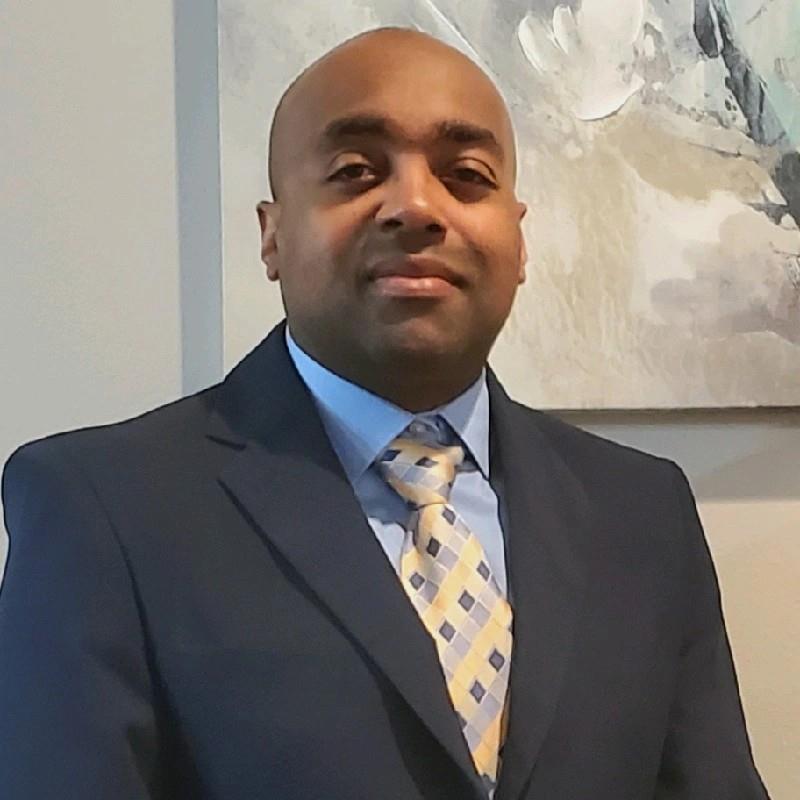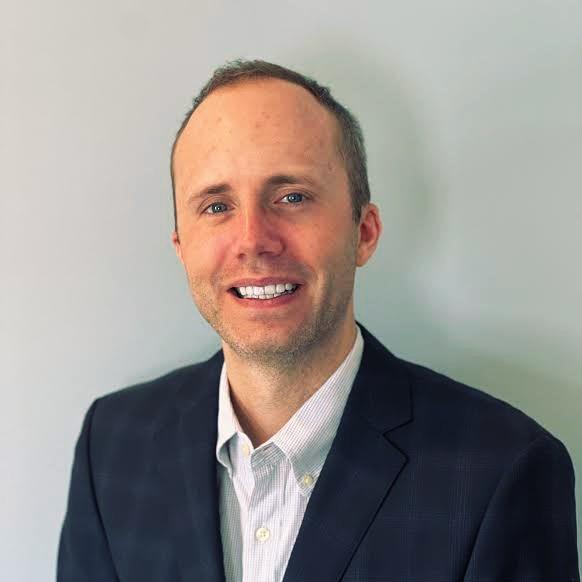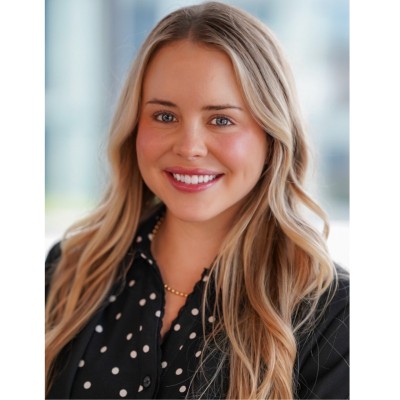Proven Strategies to Win More Sales
In this episode of the Medical Sales Podcast, Samuel sits down with Steve Gielda, co-founder of Ignite Selling and a leading voice in sales enablement for life sciences. Together, they tackle one of the toughest challenges post-COVID: access. Steve breaks it down into two fronts—how to increase utilization inside accounts where you already have a footprint, and how to break into new accounts by linking your solutions to the hospital or IDN’s strategic initiatives.
The conversation also dives into the smart use of AI in sales: from building prompts that uncover strategic goals, metrics, business units, and decision criteria, to validating data and avoiding hallucinations. Steve shares why AI won’t replace reps—but it will redefine the role, shifting top performers into strategic advisors rather than just information providers.
We close with a practical playbook: planning by pipeline stages, coaching early, asking questions that challenge both clinical and business assumptions, and tracking stage velocity so opportunities keep moving. Real tactics you can apply on your very next call.
Connect with Steve: LinkedIn
Connect with Me: LinkedIn
Love the show? Subscribe, rate, review, and share! Here’s How »
Want to connect with past guests and access exclusive Q&As? Join our EYS Skool Community today!
Watch the episode here:
Or Listen to it on your favorite platform:
Episode Transcript:
00:05 – Samuel Adeyinka (Host)
Hello and welcome to the Medical Sales Podcast. I’m your host, Samuel, founder of a revolutionary medical sales training and mentorship program called the Medical Sales Career Builder, and I’m also host of the Medical Sales Podcast. In this podcast, I interview top medical sales reps and leading medical sales executives across the entire world. It doesn’t matter what medical sales industry from medical device to pharmaceutical, to genetic testing and diagnostic lab, you name it you will learn how to either break into the industry, be a top 10% performer within your role or climb the corporate ladder. Welcome to the Medical Sales Podcast and remember, I am a medical sales expert, sharing my own opinion about this amazing industry and how it can change your life.
00:51
I particularly love the conversation of access because after COVID, I mean, access has always been somewhat of a challenge in medical sales. Right, that’s why it’s medical sales and that’s why it’s the industry it is and that’s why they hire. They look for the brightest and the best to hire so they can get that access. But after COVID, access turned into a completely different beast and it’s still something that’s very prevalent on everyone’s mind today, and especially for the top-performing rep that’s doing it the way you reminded, which is, you know, don’t just hang out where there’s low-hanging fruit. Don’t just hang out where all your friends are hanging fruit. Don’t just hang out where all your friends are. Go to the places that strategically make the most sense for the penetration of your own business and figure out a way to get in there and do your thing. Which brings us back to access what is ignite selling. How do you guys see helping around getting access, or is there something that ignites only has around getting access?
01:39 – Steve Gielda (Guest)
yeah, I think we break down access, getting access kind of in, kind of maybe two buckets Maybe there’s a third one if we really think about it. But one is getting access into accounts to where you’re well known. You’re there, you’re inside the account, but they’re not utilizing your product to the degree that you know that they should or could. Okay, products on the shelf, but so are three other products on the shelf, and right now you’ve got two of the doctors using your product, but the other three are not using your solutions at all. So how do you get access to drive greater utilization? That’s one bucket. The other bucket would be is how do I get access into an account that we’re not currently in today? So let’s kind of break those things down quickly just into two different buckets. I think that when you look at the first one, which is we’re inside the account but we’re not getting the utilization or driving the market share or share of the wallet that we think we can inside this account, what do we do? I think that it comes down to a couple of things. One is that it’s critically important to understand that. What are you leveraging your advocates to help win over some of those adversaries, those people that are not supporting you, or are you trying to go at it alone?
02:52
I go see these other three doctors who are using my competitor product but they won’t give me access to, they won’t give me their time. I send them their emails. They’re not responding. The best way to get access is through a referral or an introduction from somebody who supports you. The best way to get access is through a referral or an introduction from somebody who supports you. So we ask questions. I ask when we ask, who is your strongest advocate inside the account, they’ll say oh, this is Dr Yates Terrific. Now here’s the question Is Dr Yates an advocate or just a user of your product? Well, what’s the difference? They’re using my product, they love us, uh-uh. What has Dr Yates said or done to carry the flag for your company throughout this hospital? What actions have they taken other than just use your product? Have you asked them to go talk to these other doctors? Have you asked them to quantify the impact of their results because they’ve used your solution, and to quantify that so that you can take it to others? What actions have they taken? So when you’re in this bucket over here, it’s all about, are you leveraging your advocates to help neutralize and win over those people, or to get access to those people that you need to get access to, and the other camp where they don’t even know how to spell your company name. How do you get access there? And I think that’s a, though much more difficult, it’s still not impossible. I think the answer there, what we have found, is that those sales representatives that can understand what the mission-critical initiatives are for that hospital or from that department.
04:28
Okay, not too long ago we were working on keeping the medical device manufacturer out of the equation, but one of the things the sales representative did was they understood what was happening within that IDN, and they found out that there was an independent hospital that was going to be acquired by another IDN and that was going to force this hospital to have more influence inside that community, particularly in their areas of heart health, and all of a sudden, this was going to become a competitor to these other hospitals that were in this region. So what did the sales representative do? Well, the sales representative started looking at the metrics around cardiovascular health and cardiovascular care in that community and the types of doctors that were over here versus over here. Guess what the local community hospital didn’t have the big name cardiologists and cardiac surgeons as this one over here did. But the moment that that community hospital was acquired by an IDN, guess what was going to happen? They potentially risk losing those doctors to start running their cases over here.
05:29
So what the sales representative did is simply worked to get access into the C-suite of the hospital by simply saying, hey, sending communications and saying you know, this is what I’m aware of, and what they did was they eventually? This took a little while, but what they eventually did is they? They had a referral into the hospital administration to share their data and they were asking them what is your strategy, mr Hospital administration, to prevent these cardiac surgeons from starting to run their cases now over to this new hospital? It’s not new, but it was an. It’s now going to be a much larger influence in the community. What are they? What’s your strategy? Because I’ve been, I’ve been watching this and I think we might be able to help. All of a sudden, they had, they had their ear. That’s just one example, sam, on what you can do to help get into a hospital that you’re not currently penetrated.
06:27 – Samuel Adeyinka (Host)
It goes back to what you’re saying. It’s all about the strategy and the fact that they inserted themselves and the fact they took the time to clearly understand where they can offer them value, which is understanding. The competition with the IDNs took them back to a strategy that allowed them to be seen, which gave them access. It goes back to what you’re.
06:48 – Steve Gielda (Guest)
Thinking before you act.
06:51 – Samuel Adeyinka (Host)
Okay, so we’re in 2025. This is the advent, not advent. This is the commercialization of AI, where it’s just being it’s everywhere. I mean it’s everywhere, including med tech companies, including the sales force of med tech companies. I mean, I know of a few companies off the top of my head that have added an AI assistant to their sales reps. Tell me what you know. If anything, steve is Ignite selling, playing with this, thinking about it, doing it already. Talk to me.
07:23 – Steve Gielda (Guest)
Yeah, we don’t have a choice. I mean AI. I just published an article. It was just published last week in Top Sales, top Sales Magazine, and it was all about the utilization of AI in the sales world. I think that if you got your head in the sand right now, you’re going to wake up and wonder what the hell happened. When you wake up about how quickly things are moving.
07:47
Ignite Selling is not just embedding AI into our tools to help people think more strategically, but we’re also encouraging our sales team at Ignite Selling, as well as our clients, to leverage a smart AI assistant, maybe by coming up with five questions. So, with my sales team, if they’re going to be going after a new med tech company, there are five questions to which they need to. They simply just type in, you know. They’ll type in you know Stryker Corporation, and the answer to these five questions automatically come up, because the prompts are already there. But they’re simple. The same kind of questions should be asked could be asked for any med tech sales rep or any pharmaceutical or diagnostic sales rep. If you’re trying to go into St David’s Hospital, like that’s here in Austin, okay, simply pop up the questions. So your first question would be is what are the top three strategic initiatives for St David’s Hospital going into 2026? That’d be one question you need to know about. Another question would be is how successful were they at meeting their objectives in 2025?
08:56 – Samuel Adeyinka (Host)
I hope you’re enjoying today’s episode and I want to let you know our programs cover the entire career of a medical sales professional, from getting into the medical sales industry to training on how to be a top performer in the medical sales industry to masterfully navigating your career to executive level leadership. These programs are personalized and customized for your specific career and background and trained by over 50 experts, including surgeons. Our results speak for ourselves and we’re landing positions for our candidates in less than 120 days in top medical technology companies like Stryker, medtronic, merck, abbott you name it. Would you run an Ironman race without training and a strategy? You wouldn’t. So why are you trying to do the same with the medical sales position? You need training, you need a strategy and you need to visit evolveyourassesscom, fill out the application schedule some time with one of our account executives and let’s get you into the position you’ve always dreamed of.
09:53 – Steve Gielda (Guest)
Another one is what’s the biggest investments that they’re making to better serve the community here in the Austin area? Anyway, it’s about coming up with these list of questions so that you simply type in St David’s. Those answers simply come up bam, bam, bam, bam bam. Now I understand what the metrics are. How well did they achieve their metrics last year? Where it’s the biggest investments? What are the biggest threats, whatever they might be? And now I have a litany. All I typed into AI was St David’s.
10:22 – Samuel Adeyinka (Host)
Right, what are the?
10:23 – Steve Gielda (Guest)
other two. What are the other two questions? Well, they could be anything, but they are all about what’s happening at the strategic level of the account that our solutions can link to. Here at Ignite Selling, one of the things that my sales representatives do if they’re going to put in Striker, one of the first things they do is they’ll simply type in Striker and they’ll say what are the major business units of Striker Corporation? There they come out. Now you know all the business units of Striker, which is the largest revenue producer of Striker Corporation, and that particular one will come out. Which of these business units is struggling the most? That will then come out who’s the greatest competitors to this particular business unit? This information will fall out and then the other questions that my team asks are who do it? Who do these sales representatives need to engage to create value for these particular products? And you’ll hear chief nursing officer, risk managers surgeons.
11:21
And then the last question is going to be is what is the common decision criteria of the risk manager surgeons when comparing Striker to other competitive solutions that are in the marketplace, when comparing Striker to other competitive solutions that are in the marketplace? And so now my team is now armed with a series of questions about who is Striker? Who’s their biggest revenue producer out of the business units? What’s the biggest challenges in the market? Who do they face? Who do they sell to? And of those buyers, what’s the criteria they use when they’re making buying decisions? Now my team is now prepared to have a business conversation about how can Ignite Selling help them improve those metrics Now does your team use a public AI platform for this, or did you guys create your own?
12:03 – Samuel Adeyinka (Host)
Yeah, we’ve created our own.
12:05 – Steve Gielda (Guest)
Okay, because I was going to say how do you think, samuel? I don’t think that you can. I think you can still use the public version. You’re just going to be limited to how many questions you can ask in a single day.
12:16 – Samuel Adeyinka (Host)
Well, and also, how do you manage the hallucinations? If you’re using one of the public platforms, how do you know you’re getting data that’s real?
12:25 – Steve Gielda (Guest)
Yeah, I think that’s the reason. Well, even with ours, even though ours is closed because we have, we’re developing our own prompts and our own kind of chatbots, I do think that it’s still susceptible to hallucinations Because, remember, I’m asking about, for example, striker Right, and when I go out to ask about Striker, it’s going out to all over the data that’s been published, whatever Right, correct. So, therefore, when we are asking our prompts, we continue to drill down to validate certain information, okay, okay, and we teach our sales team you’ve got to be smart on the questions that you’re going to ask. Because if they went and asked the question, assuming that the biggest business unit for Stryker is orthopedics, I’m going to just make this up, sure. And they simply say, and they position their questions simply saying you know, biggest business unit for Striker is orthopedics, I’m going to just make this up, Sure, and they simply say and they, they, they position their questions simply saying you know, I’m aware that your biggest business unit today, revenue driver, is orthopedics and one of the biggest challenges you guys have been facing.
13:25
Based upon the 10 K report that I read, or the last, what’s the last call, the shareholders call that I listened to? Can you tell me a little bit about blah blah, blah blah. That could be a hallucination. If you didn’t go back and validate it Now, you’ve lost all credibility, so you do need to ask continued questions. That vets out any potential hallucinations.
13:47 – Samuel Adeyinka (Host)
Do you think that? Well, okay, I’ll ask it anyway. Do you think that AI will ever replace the sales rep? No, okay, no. Do you think that AI will significantly reduce the number of sales reps starting to fill today?
14:02 – Steve Gielda (Guest)
It already has. It wasn’t even AI that did that, okay, the internet did that, sure.
14:09 – Samuel Adeyinka (Host)
Sure, so you see it going even further, of course.
14:13 – Steve Gielda (Guest)
I think. I think it will. I think that the role of a salesperson in the next 10 years is simply going to change. It’s not, you’re not going to be replaced, but what you are, you are there to do, is to be that advisor. You don’t need to share information anymore. They got it, they know it, they too are putting in. Should I do business with Medtronic or Boston Scientific?
14:37 – Samuel Adeyinka (Host)
Just the other day I had a client that said their doctor was arguing with the rep about what ChatGPT was saying about their product versus what the rep Make better buying decisions based upon the direction the strategic direction of that hospital or that physician’s office is striving to go.
14:58 – Steve Gielda (Guest)
Because guess what Physicians, particularly in the physician’s offices, say you’re selling in the aesthetics marketplace. You’re selling hair removal lasers, okay, and these are half a million dollar units going into an office, and these are half a million dollar units going into an office. These doctors didn’t go to business school. These doctors need help making a good business decision. The same can be said for a VAC committee. They have been people on the vacuum in a hospital, have been trained to buy what is clinically acceptable.
15:29
We’ve all heard that. Right, this is clinically acceptable and it’s cheap. Buy it as opposed to. Let’s keep the clinical value there. But let’s also look at which of these partners, these solution providers, can actually help us achieve the market share for patients over 72 that we’re striving for the next 12 months. Who can actually help us do that? And so that is a different kind of conversation to have, because I knew that this hospital has a desire to go after patients that are over 72 years old. They want to increase that patient population of Medicare patients from 22% to 34% in the next 24 months. I’m going to talk to them not about the clinical value of my product, but how my company and my solutions together can help them meet that metric. That’s the value of a sales rep. Ai can’t do that, Sure.
16:29 – Samuel Adeyinka (Host)
You know, earlier in my career, when I was in the field, I just assumed that eventually med tech companies would hire physicians and nurse practitioners to be sales reps, because it just seemed like it made so much sense. It’s automatic credibility, it’s peer to peer, it’s heavy influence, like why wouldn’t they do this? And I guess with a medical science liaison position it kind of happened, but not really, especially not to the extent I imagined. Do you still see that coming?
17:00 – Steve Gielda (Guest)
Or do you think AI is going to displace that notion? Again? I think that clinical support, clinical expertise, is always going to be needed and I think you’re going to see particularly medical device companies looking to take physicians and clinicians in general and bring them into their sales organization in some capacity. Pharmaceuticals are bringing them into this medical liaison role. So I think you’re going to see that and it’s different in pharmaceuticals because that’s a liaison they’re having conversations that a sales representative can’t have because of all the rules and regulations that are that are there.
17:38
But I think in the in the clinical, in the medical device world and diagnostic world, those clinician roles are always going to be needed. I believe because they bring that, are always going to be needed. I believe because they bring that clinical viability and truth in a way that customers don’t view sales representatives to have. So I think I don’t see AI replacing that. Again, I think AI is merely going to adapt how that clinical application specialist does their job, or how a sales representative does their job, or how a health economics team does their job, or how a sales representative does their job or how a health economics team does their job. I don’t think it’s going to replace those people, at least not in our lifetime, and I’m older than you are.
18:18 – Samuel Adeyinka (Host)
I’ll take it. Steve. This was fantastic. Is there anything else you’d love to share with our audience before we go today? Remember, our audience are people that want to get into medical sales, people that are in medical sales, the people that are leading medical sales. Anything you want to share with them today?
18:31 – Steve Gielda (Guest)
I’ll close with this. I think that we have seen over the last decade one of the biggest differences between top performers and average performers are those individuals to whom hold themselves accountable for doing the right things in the early, middle and late stages of their pipeline process. So they have it clearly defined. They know exactly what I should be doing at stage one versus stage two. Ask yourself for this is a question to all of your listeners today is what is the average length of time? Does an opportunity stay in a single stage and is it acceptable based upon the buying process of your customer? So, in other words, if your customers make buying decisions on picks and ports okay, in their hospital, they can make that buying decision in 60 days and you have an opportunity sitting in your pipeline for four to five months. Guess what? You’re not doing something right. So ask yourself what do I need to be doing in the early, middle and late stages on a consistent basis to make sure that I maintain momentum throughout the entire pipeline process?
19:43 – Samuel Adeyinka (Host)
Love it, steve. Thank you, steve. Steve, thank you for the show. It was great having you. Thanks so much, appreciate it. I hope you enjoyed today’s episode and remember I have a customized and personalized program that gets you into the medical technology industry as a sales professional or any type of role for that matter. Become a top performer in your position and masterfully navigate your career to executive level leadership. Check out these programs and learn more at EvolvingSuccesscom by visiting our site, filling out an application, scheduling some time with one of our account executives and allowing us to get you where you need to be. Stay tuned for more awesome content with amazing interviews on the Medical Sales Podcast.



























































































